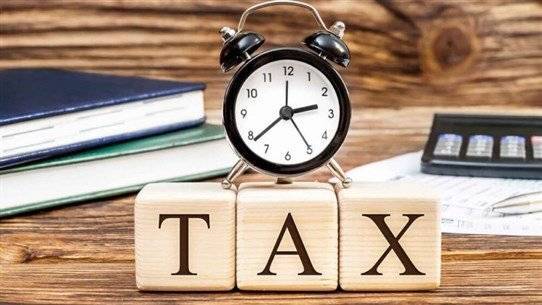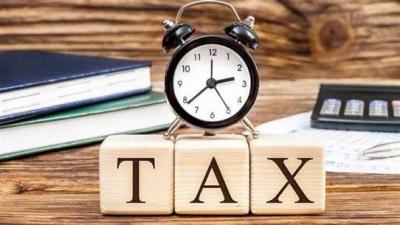The "Financial Sector Recovery Plan," which the government pushed through the cabinet without discussion, included a 40% increase in the Value Added Tax (VAT) from 11% to 15%. This increase will add to the tax burdens on consumers already hit hard by inflation and a decrease in purchasing power, raising the "cost of living by 3 to 4 times," according to social researcher Adib Naama. The unfortunate reality is that, alongside this burden, austerity will dominate government work, exacerbating poverty in various dimensions. For decades, successive governments have acted similarly, driven by the same mindset of increasing tax burdens to boost treasury revenues. Despite the expectation that the crisis would provide a chance for tax reform, Prime Minister Najib Mikati's government reached an agreement with the International Monetary Fund to increase tax burdens, primarily through raising the VAT from 11% to 15%, thereby putting additional costs on consumers without any consideration of the heavy burdens they faced in the past two and a half years. During this period, inflation rates soared by 825%, representing a considerable burden by itself. Therefore, passing the bill for the collapse in public revenues onto consumers by increasing VAT to 15% is merely a formula for increasing poverty. This tax will multiply several times if it coincides with an increase in the customs dollar rate.
The financial recovery plan drafted by Mikati's government, approved in the last session before transitioning to a caretaker government, noted the intention to "broaden the tax base." However, this plan did not specify what this broadening entailed or whether it included a review of tax policies aligning with the intended economic policies during the "recovery" phase. Instead, the increase was presented similarly to how previous governments had approached it. Alongside the introduction of new taxes on the importation of certain types of cars, on various forms of built properties, and on alcoholic and sugary drinks, the VAT will be gradually increased from 11% to 15% over two years, amounting to a 40% rise. Nonetheless, former Director General of Accounting at the Ministry of Finance, Amin Saleh, indicated that "the calculation is much greater," as before calculating the VAT, there is another tax set to increase: "the reconsideration of the customs dollar exchange rate. Forecasts suggest it will be assessed based on the Sayrafa platform rate, leading to a 15-fold increase in customs duties on imported goods." On top of this increase, transport, insurance, unloading, and commission costs will be added before computing the VAT. In simpler terms, the effects of the VAT will be enormous following all these increases, significantly burdening consumers.
The issue at hand is that the discussion regarding the effects of VAT on lower-income classes is not new; everyone knows that this tax will lead to an increase in poverty rates. It stems from an accounting mindset that solely aims to increase treasury revenues without any real tax reform since it relies on an indirect tax on goods and services. Typically, power holders resort to such taxes for two reasons: they are easy and flexible to collect and are also rich in revenues, representing 27% of total treasury revenues between January 2021 and September of that same year (the most recent available data).
This increase has been introduced as a tax reform, although it is an arbitrary measure "that does not achieve the intended goal. In times of economic contraction and collapse, there is absolutely no room for tax increases, aside from the fact that the state's role should be to provide support rather than extract from the already depreciating pockets of citizens. This inevitably pushes citizens towards tax evasion amid the absence of a specialized apparatus to uncover evaders. Consequently, tax deductions, economic contraction, tax evasion will increase, and some institutions will have to close their doors."
The issue is not limited to increased tax evasion without achieving the accounting goals; the core problem lies in the ruling forces' lack of courage to enact fundamental reforms, driving them to resort to such measures. Without comprehensive reform of the tax system, including the tax structure and types, and the associated economic and social goals, such actions cannot be placed on the discussion table.
Conversely, this plan offers nothing but an unjust and non-targeted distribution of losses. The only proposed social project is a clientelist one that revolves around so-called "social safety nets" and "programs for the poorest families." As seen by development and social policy advisor and poverty alleviation consultant Adib Naama, this project is "isolated and partial," as it "targets very narrow categories and is driven by clientelism." In contrast to the clientelist compensation governed by a regressive view of tax policies, "increasing the VAT to 15% will directly raise the cost of living by 3 to 4 times." He points out that "the IMF, despite its flaws, supports progressive and exceptional solidarity taxes to ease the burden of the crisis. Some senior bankers see this as communist proposals." Hence, he believes that the proposal for this increase is a "process of collective and sustainable impoverishment" that coincides with the general deterioration in services like healthcare and education. Its repercussions will affect "the poor as well as the middle and upper classes. However, the affected poor will become even poorer, barely able to meet their nutritional needs as they increasingly rely on aid from relatives, the state, or NGOs." According to Naama, "their quality of life has not changed; rather, their conditions have worsened, while the middle classes have largely witnessed a deterioration and a change in their lifestyles. Therefore, lower middle classes will inevitably become poor, while middle-class individuals will see their situations worsen."
In conclusion, Lebanon is entering a more perilous social and economic phase following the parliamentary elections, described by Naama as "catastrophic," which will deepen further with the approval of the recovery plan and its taxes. Accordingly, Naama warns against treating the election results as temporary. Under the existing policies, "the social pyramid in Lebanon will, for the next 30 years, be dominated by a very wealthy minority and a vast, impoverished majority, with the near impossibility of restructuring the middle class as we knew it years ago." Taxes are one of the economic tools that can be used to address societal inequality and to reinject funds where there is a shortfall. The state collects taxes but spends in return, thus effectively deducting from those making larger profits or who have greater access to profits due to weak tax policies, to spend money within a comprehensive development policy. Closing the gap of income and wealth inequality is feasible through tax policies. However, when the system relies on indirect taxes impacting the poor first, it loses its fair designation, redirecting money from the society (both poor and middle-class) to the wealthy few. This is precisely what the financial recovery plan solidifies. So, what is necessary today amid the largest financial and monetary collapse? Adib Naama answers: "There must be a wealth tax, progressive income tax, property taxes, and improvement taxes." Amin Saleh adds: "High taxes on inheritance, as well as extraordinary taxes like deducting a certain percentage from funds and abolishing nearly 40 taxes..."




